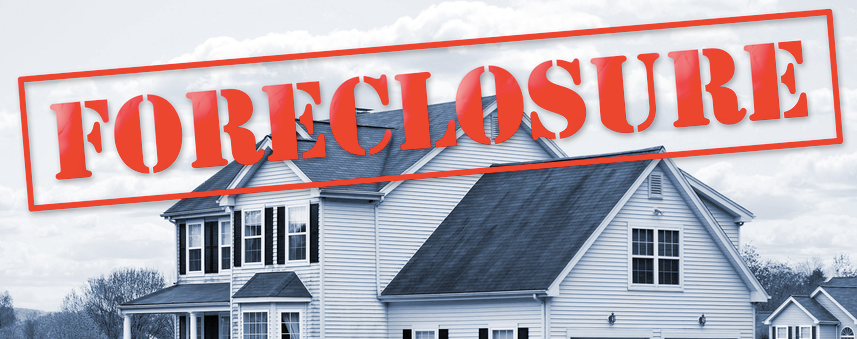
If you’re behind on payments in Georgia, GA, you’re not alone—and you’re not out of options. Foreclosure moves slowly at first, then all at once. The sooner you understand the fallout (and your alternatives), the more control you keep over your credit, equity, and timeline.
Why Foreclosure Hurts Sellers So Much
1) Credit Damage (and higher costs for years)
A completed foreclosure is a major derogatory on your credit. You can still rebuild, but expect higher rates on credit cards, car loans, and even deposits for utilities or rentals. Avoiding a completed foreclosure—through a sale, short sale, or deed-in-lieu—usually reduces the total damage.
2) Equity Erosion
Fees, interest, legal costs, property preservation, and delinquent taxes pile up quickly. Meanwhile, distressed properties nearby can weigh on appraisals. Every month you wait, your net can shrink—even if headline prices look stable.
3) Limited Future Mortgage Options (for a while)
Loan programs impose waiting periods after a foreclosure. If you resolve the situation before the foreclosure completes (modification, sale, or short sale with deficiency waived), your path back to financing is typically shorter.
4) Housing & Employment Friction
Landlords may ask for larger deposits or co-signers. Some employers (especially in finance or security-sensitive roles) check credit. A clean, documented resolution helps.
5) Emotional & Opportunity Costs
Carrying a property you can’t afford drains time, money, and focus. Resolving it sooner frees you to plan your next move.
How Foreclosures Push Down Local Prices (and what it means for you)
When more distressed homes hit the market in Georgia, buyers get:
-
More inventory (especially “as-is” homes)
-
Sharper pricing and fewer concessions on distressed listings
Appraisers must compare to recent, similar sales—and if those include foreclosures/REOs, your valuation can suffer. That’s why speed + clean presentation matter if you’re selling a non-distressed home nearby.
Selling Your House in a High-Foreclosure Market: Your Playbook
If you can wait and want top dollar (traditional listing)
-
Price to today’s market, not last year’s.
-
Neutral paint, lighting, landscaping—small updates that remove buyer objections.
-
Consider a pre-inspection and fix safety items to reduce renegotiations.
-
Offer buyer-friendly terms (closing-cost credit or interest-rate buydown) to widen the pool.
If you need to sell fast (time or repairs are an issue)
-
As-is, direct cash sale to a reputable local buyer.
-
No showings or repairs
-
Clear closing date (often days or weeks)
-
Fewer surprises when seconds count
-
-
If you’re underwater, ask about a short sale—a lender-approved sale below payoff. Get any deficiency waiver in writing.
If you want to keep the home (income is stabilizing)
-
Call your servicer’s Loss Mitigation team and ask about:
-
Repayment plan (spread arrears)
-
Loan modification (change rate/term)
-
Forbearance exit options
-
Deed-in-lieu (if selling isn’t feasible and title is clean)
-
A Simple Decision Tree
-
Have equity + 60–90 days to sell? → List traditionally with a realistic price and light tune-ups.
-
Limited time / heavy repairs? → Seek an as-is cash offer and compare your net to listing.
-
Owe more than value? → Pursue a short sale (approval required) or a modification if you want to keep it.
-
Multiple liens? → Start payoff/estoppel requests immediately; short sales can often resolve junior liens at closing.
FAQs
Will a foreclosure crush my credit forever?
No—but it’s a severe mark. Settling before foreclosure (sale, short sale, or deed-in-lieu) usually lessens long-term harm.
Can I sell if I’m already scheduled for auction?
Often yes—if there’s time to close or get short-sale approval. Move fast, send complete documents, and coordinate with your servicer and closing attorney.
Do I have to fix everything to sell?
Not in an as-is sale. For a traditional sale, fix safety and big punch-list items that can crater appraisals or buyer confidence.
What if I have a second mortgage or HOA lien?
You can still sell, but those parties must be paid or approve terms. Start those conversations early.
Two Clear Paths in Georgia
1) Work with a great local agent
If you have time and equity, a skilled agent helps you price correctly, market aggressively, and navigate appraisals and repairs.
2) Sell directly to Middle Georgia Cash Homes (fast and certain)
-
As-is cash offers (no showings, no repairs, no commissions)
-
Many standard closing costs covered
-
We coordinate with your servicer and closing attorney to stop the clock
-
Flexible closing date and optional short rent-back so you can move calmly
Ready for a straight, written offer? Call 478-216-1795 or message Middle Georgia Cash Homes. We’ll show you a side-by-side net comparison (list vs. direct sale vs. short sale) so you can choose what’s best—no pressure.
This article is general information, not legal or credit advice. Rules vary by state and loan type; consider a HUD-approved housing counselor or attorney for your situation.
